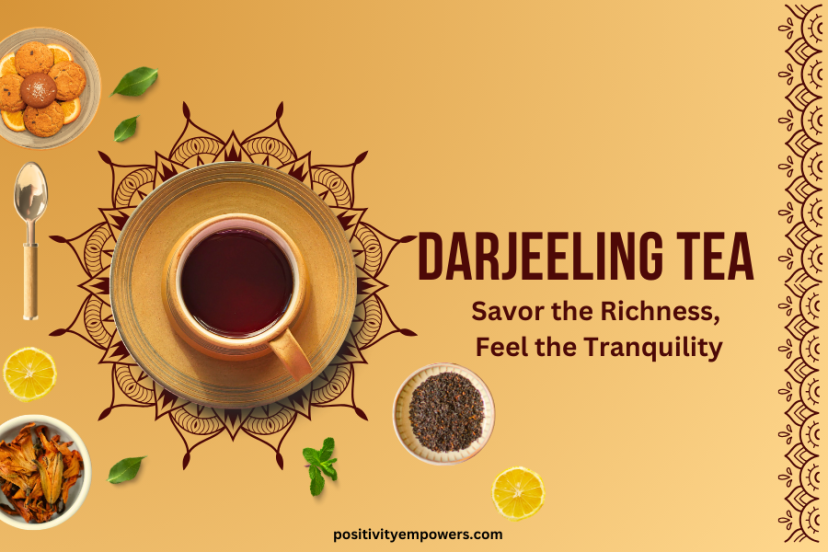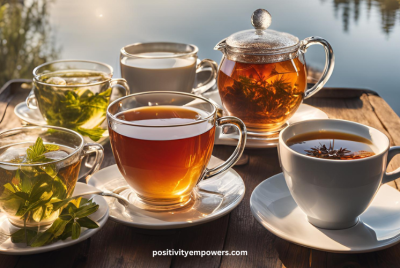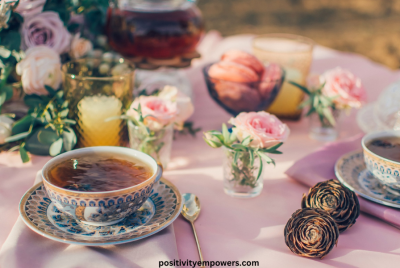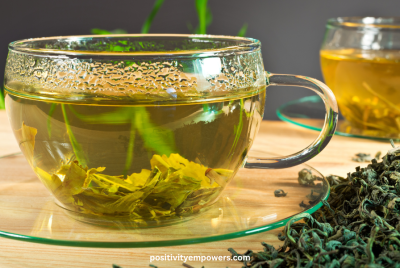Darjeeling Tea – A Buyers Guide to Benefits, Cost, and Selection
Darjeeling tea is often called the “champagne of teas” — and for a good reason. Known for its unique flavor profile and incredible health benefits, it is beloved by tea enthusiasts worldwide. In this article, I’ll walk you through what makes this tea so special, how to brew it perfectly, and what you can expect to pay for a quality cup.
What is Darjeeling Tea?
Darjeeling tea is a type of black tea, though it can also come in green, white, and oolong varieties. It stands out because of its distinctive flavor and fragrance, which vary significantly depending on the time of year it’s harvested. The tea is grown in the Darjeeling region of West Bengal, India, where the high altitudes and unique climate create a flavor that’s hard to replicate.
The Origins of Darjeeling Tea
It dates back to the mid-19th century when British colonizers started cultivating tea in India. The combination of rich soil, high altitude, and the cool, misty climate gave the tea from this region a distinct aroma and complex flavor, which quickly gained international acclaim.
The Different Types of Darjeeling Tea
Darjeeling tea is usually categorized by “flush,” which refers to the different harvests throughout the growing season. Each flush brings out unique qualities in the tea.
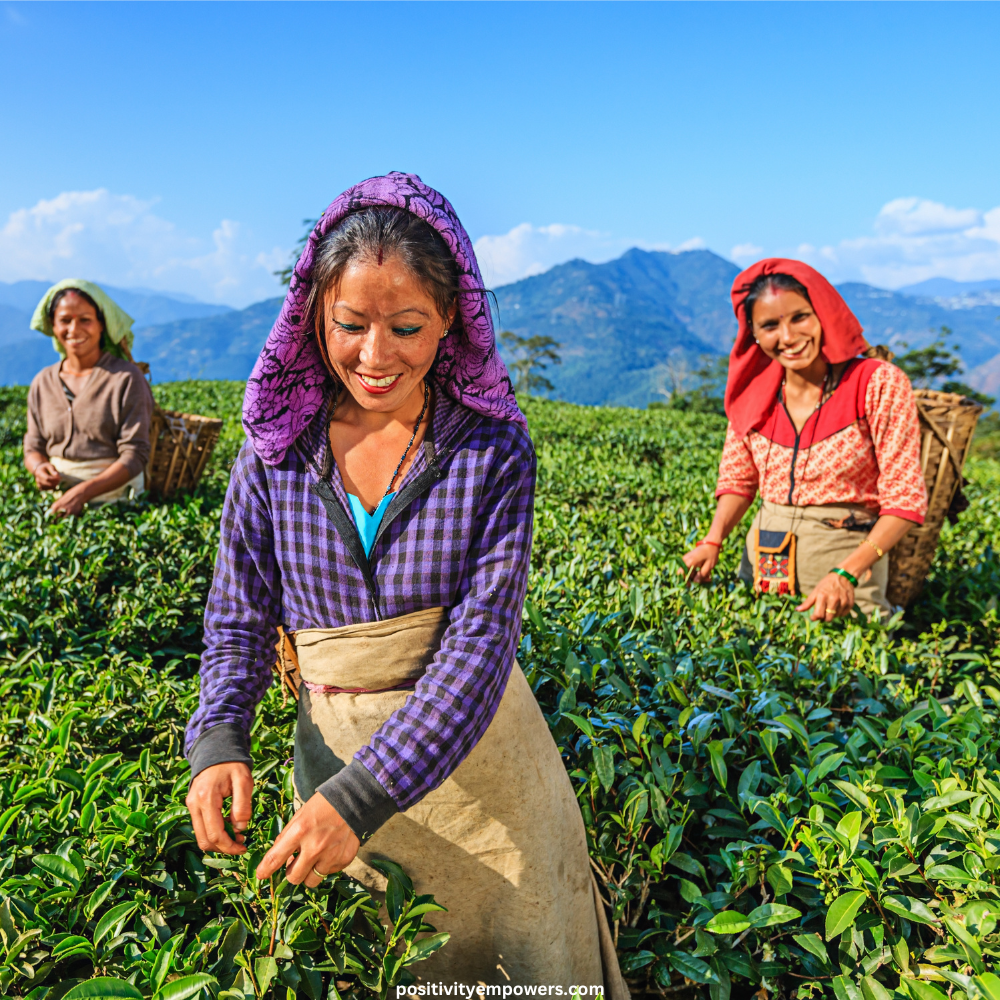
First Flush
The first flush is the earliest harvest of the year, typically occurring in spring. This tea is known for its light, floral notes and a delicate flavor that tea enthusiasts adore.
Second Flush
The second flush, harvested in summer, has a richer, muscatel flavor with a hint of sweetness. This type of Darjeeling tea is often preferred for its full-bodied taste and darker color.
Monsoon and Autumn Flushes
The monsoon flush occurs during the rainy season and generally has a bolder, more robust flavor. Autumn flushes, harvested in late autumn, are milder, making them great for those who enjoy a smoother, mellow taste.
Darjeeling Tea Benefits
Darjeeling tea isn’t just a beloved beverage for its exquisite flavor—it’s a holistic drink with numerous health advantages that support both the body and mind. Whether you’re looking for a calming ritual or a gentle health boost, Darjeeling tea has something for everyone.
Rich in Antioxidants
Darjeeling tea is a powerhouse of antioxidants, particularly polyphenols and flavonoids, which combat free radicals in the body. These harmful molecules, if left unchecked, can cause oxidative stress, contributing to aging and chronic diseases like cancer and heart disease. By neutralizing free radicals, antioxidants in Darjeeling tea not only protect cells but also promote healthy, youthful skin and enhance overall vitality. Its anti-inflammatory properties further contribute to reducing the risk of illnesses such as arthritis and diabetes.
Boosts Heart Health
A daily cup of Darjeeling tea can be a heart-smart choice. Its rich blend of antioxidants, including catechins, helps reduce LDL (bad cholesterol) levels and increase HDL (good cholesterol). This balance improves blood flow and reduces the risk of plaque buildup in arteries, contributing to better cardiovascular health. Studies have also shown that regular tea consumption can help regulate blood pressure, adding to its heart-protective benefits.
Supports Digestion
Struggling with post-meal discomfort? Darjeeling tea can work wonders for your digestive health. Its tannins, a natural compound found in tea, aid in calming the stomach lining and promoting smoother digestion. It’s particularly effective in reducing bloating, gas, and other symptoms of indigestion. Whether enjoyed as a hot drink after a meal or sipped during the day, it acts as a gentle digestive aid.
Reduces Stress and Enhances Mood
Life’s stressors can sometimes feel overwhelming, and Darjeeling tea is a natural remedy for calming the mind and uplifting the spirit. With moderate caffeine content, it provides just enough energy to shake off fatigue without causing overstimulation or jitters. What makes it truly unique, though, is its theanine content—a natural amino acid known to promote relaxation and reduce anxiety. Sipping this tea can feel like a mini retreat, balancing energy and tranquility while elevating your mood.
Additional Benefits
- Boosts Immunity: The antimicrobial properties of Darjeeling tea help strengthen your immune system, offering better protection against colds and infections.
- Supports Weight Management: Its ability to boost metabolism, coupled with its low-calorie nature, makes it an excellent choice for those aiming to maintain a healthy weight.
- Promotes Mental Clarity: The unique balance of caffeine and theanine enhances focus and cognitive performance, making it a go-to drink for students and professionals alike.
How to Brew the Perfect Cup
Brewing it requires a bit of care to bring out its best flavors. Here are a few tips to make the perfect cup.
Choosing the Right Temperature
The water temperature is crucial when brewing it. Use water that’s just below boiling, around 85-90°C (185-195°F), to avoid bitterness.
Proper Brewing Time
Allow it to steep for about 3-5 minutes. Over-steeping can result in a bitter taste, so it’s best to keep an eye on the clock for that perfect flavor balance.
Cost of Darjeeling Tea
It’s price varies depending on several factors, from the flush season to whether it’s organic or conventionally grown. Several factors impact the cost of Darjeeling tea, which can range anywhere from $10 to $80 per pound.
Season and Flush
First flush teas are often the most expensive due to their limited availability and delicate flavor, followed by second flush varieties.
Organic vs. Conventional
The organic varieties typically costs more than non-organic due to the additional labor and certifications required for organic farming practices. However, many enthusiasts find the investment worthwhile for the added purity and flavor.
Tips for Buying Quality Darjeeling Tea
You can buy Darjeeling tea from a variety of places, both online and in physical stores. When buying it, look out for these tips to ensure you’re getting the best quality.
Understanding Certifications
Certifications such as Organic, Fair Trade, and Ethical Tea Partnership can give you insights into the quality and ethical standards of the tea you’re purchasing. Make sure the label specifies that the tea is from the Darjeeling region. Genuine Darjeeling tea will often have the “Darjeeling” trademark, which guarantees its origin.
Final Thoughts
Darjeeling tea is more than just a beverage; it’s an experience. With its unique flavors, health benefits, and a range of types to choose from, there’s a flush for every palate. Whether you’re trying it for its rich, muscatel taste or the health perks it brings, I hope this guide helps you find and enjoy the perfect cup.
FAQs
What is the best time to drink it?
The morning or afternoon is ideal to fully enjoy its flavor.
Can it help with weight loss?
Yes, its antioxidants can support metabolism and aid in weight loss.
How should it be stored?
Store it in an airtight container, away from heat, light, and moisture.
Is organic Darjeeling tea worth the price?
Yes, it’s often higher quality and free from pesticides, which many find beneficial.

